About the interview
Mykola Davydyuk will tell about his journey from an ordinary political agitator to a famous political scientist, whom we are glad to see on any Ukrainian TV channel. In the interview, you will learn what Ukrainians need in order to become global, and you will dive into the intricacies of Ukrainian politics. Plus, you’ll learn what makes a Harvard education ahead of its time, and why the annual Nobel Prizes really matter to you.
About the profession first hand
A political scientist is a person who can explain to the population what is really happening in the country.
The authorities always resort to tricks and manipulations to fool people. However, the profession of a political scientist allows you to tell the truth and at the same time impose your vision of what the country needs for development, setting trends for an audience of millions.
For example, you form a request and every time you say on TV that the country needs honest politicians. If you broadcast the same things for half a year, then at some point people finally realize that honest politicians are needed.
I also advise people who will hold high political positions, I help young politicians, whose sincerity and competence I have no doubts about.
I treat politics professionally and evaluate any new information through the prism of the source from which it was obtained. In addition, I take into account the interests that this source may have or promote.
Background
— What prompted you to engage in politics?
— I remember that my grandfather ignited my interest in politics. He is a real village intellectual, very patriotic and statesmanlike; he is my superhero, I love him incredibly. It was with him that we first talked about politics, understood the subtleties of Ukrainian history. For example, we could go chop wood or plow the land and, to make it more fun, discuss Khmelnytskyi’s political decisions.
After all, when I was a kid, I liked watching political news more than cartoons or music videos. In addition to the fact that I knew all Ukrainian politicians by face, they were my main heroes from childhood. Watching the news just gave me a buzz: I loved it so much.
I knew all Ukrainian politicians by face, they were my main heroes from childhood.
— What impressions did you have after studying with Drahomanov?
— In my opinion, this is a very cool university, because it does not torture or terrorize. To some extent, it is Buddhist, and that’s cool, because when you study here, you belong to yourself. On the one hand, the university did not interfere, on the other hand, even if it did not provide global knowledge, you were free to search for it yourself.
Even if you chose the wrong profession after school, the university will not prevent you from finding yourself and becoming a professional. Most of my classmates, including me, have been working since the first year, and the teachers treated it completely normally.
Even if the university did not provide global knowledge, you were free to search for it yourself.
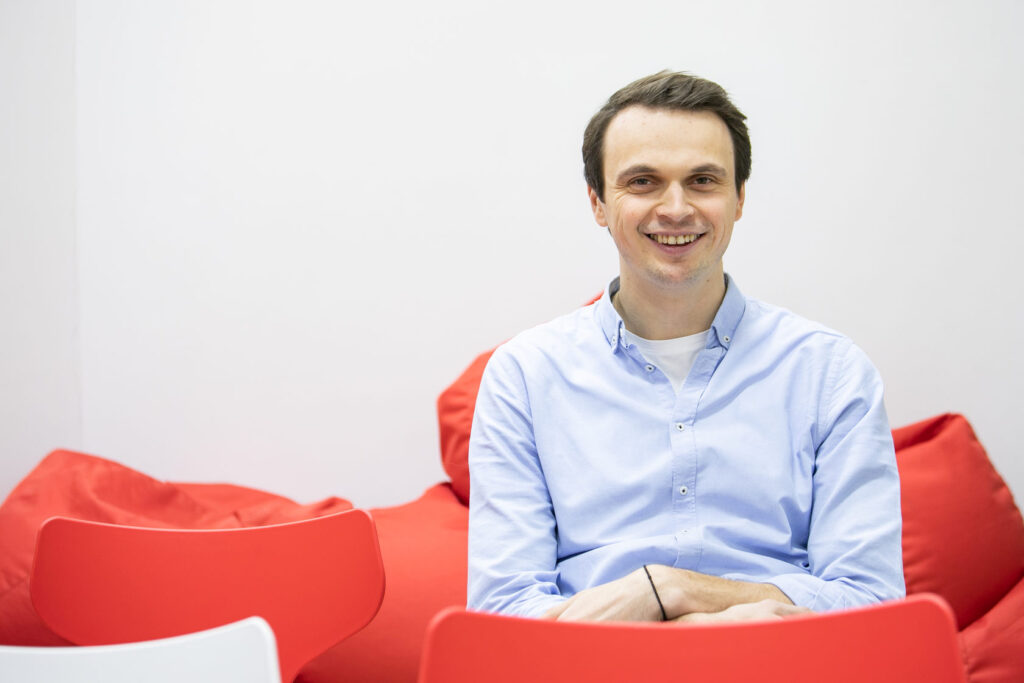
— Tell me about your first job?
— I didn’t even start from the beginning, but from the hardest bottom. After the first year, in the summer, I went to work as a waiter, but from the first day I realized that it was not for me, and the next day I paid.
Despite these circumstances, I have not stopped respecting this profession, because it is too similar to political agitation. The difference between the work of an agitator and a waiter is that in the first case you sell happiness after the election, in the second – for lunch.
The difference between the work of an agitator and a waiter is that in the first case you sell happiness after the election, and in the second – for lunch.
— And if we talk about work that is more related to politics?
— My first work was related to the local elections of 2006. Then I went to collect signatures in support of a candidate for the post of city mayor. In other words, I was an agitator in the district. Some of me laugh about it, but I think it’s a cool experience. Later, when you get involved in elections as a political technologist or are responsible for a certain direction in the headquarters, you understand what is happening from below and what those people are thinking.
— Looking back, what did you take away from this work for yourself?
— For example, you understand how long it takes to put up posters, that is, you realize how things work, which are a dark forest even for the leaders of the party headquarters, while you have gone through all this. In general, I have developed a certain principle regarding election work: the position I hold must not be inferior to the previous election. You grow when you make such demands on yourself.
I can say from my own experience that if the people who work for you are not motivated, no matter how much money you spend on the election campaign, there will be no result. If a person does not feel part of the political project for which he works, then nothing will succeed. If there is no sense of community or the idea that you are a friend of the leader, it will be a simple wandering around apartments or squares, which will not bear any fruit, because people are not passionate about it.
The position I hold in the next election must not be lower than the previous one. You grow when you make such demands on yourself.
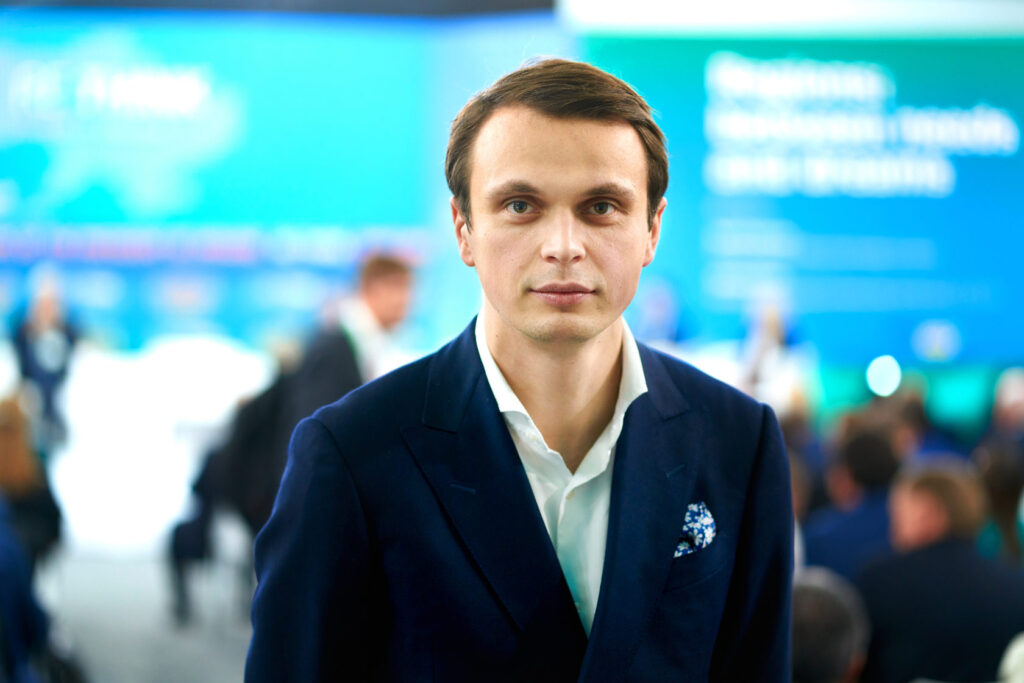
— When you combined your studies with work, what kind of things did you do at the university?
— Let’s start with the fact that I was the head of the student council, worked at three jobs, and at the same time, sometimes I still managed to go to couples, so that I wouldn’t be expelled. In addition, in the 4th-5th year I was asked several times to write theses about Ukrainian studentship for a speech from the President’s Administration. It is clear that such theses came from at least a few people, and at the time I was very proud of it, for me it was very nice and cool.
As for juggling three jobs at the same time, it might sound scary to some, but that was my schedule and I really liked it. After all, he made it possible to catch up a lot. Moreover, a similar schedule was preserved in later life. With this approach, after graduating from university, you already have three hundred different jobs and completed vacancies. When someone tells you fairy tales at an interview, you can react calmly and consciously choose what you want to do.
— Did such a busy schedule escape you during your university years?
— Unfortunately, that’s what happened. Once, when I was walking from one job to another, I stopped and realized that I couldn’t remember which job I had to be at at two o’clock. I remember standing in a daze and asking myself, “Where the hell am I supposed to be?” The only thing: I knew that it was burning terribly, but I realized that I could not do anything and I would not get any work.
At that time, I slept 3-4 hours a day, but such a schedule allowed me to get a cool experience that directly affected my development. Even if we talk about my environment at that time, even at the university I had many very interesting friends and acquaintances who, like me, played ahead with life.
Back in the university, I had many very interesting friends and acquaintances who, like me, played ahead with life.
— How did you finally understand that politics is exactly what you want to do?
— IT specialists have the following rule: when choosing a startup you want to join, you should not choose the startup that seems most promising to you, but the one where you are ready to work without money. Such a choice shows that you really love the work you are doing and are ready to fully devote yourself to this project, as well as to the values and ideas that are embedded in it. Based on this paradigm, I realized that all my activities should be centered around politics and related professions.
Harvard
— If we talk about a more global education, tell us about the courses at Harvard?
— Somehow, I started looking for courses to improve my qualifications, and all my searches led to Harvard. Then I thought, why should I fight against it, if I really wanted to go there. The first course I took was called Emerging Leaders, and the second course I took was called Conflicts and Challenges of the 21st Century. Both courses shape your idea of how a politician should respond to various challenges, solve cases of public administration and leadership.
I wanted exactly those cases where it is clear what needs to be done in a situation that no one has considered before, and Harvard gives it. You take three courses and get a diploma in public policy or public leadership. For me, Harvard means global knowledge, global classmates and strictly practical cases. All this was very important to me, because I did not want to immerse myself in theories.
For me, Harvard means global knowledge, global classmates and strictly practical cases.
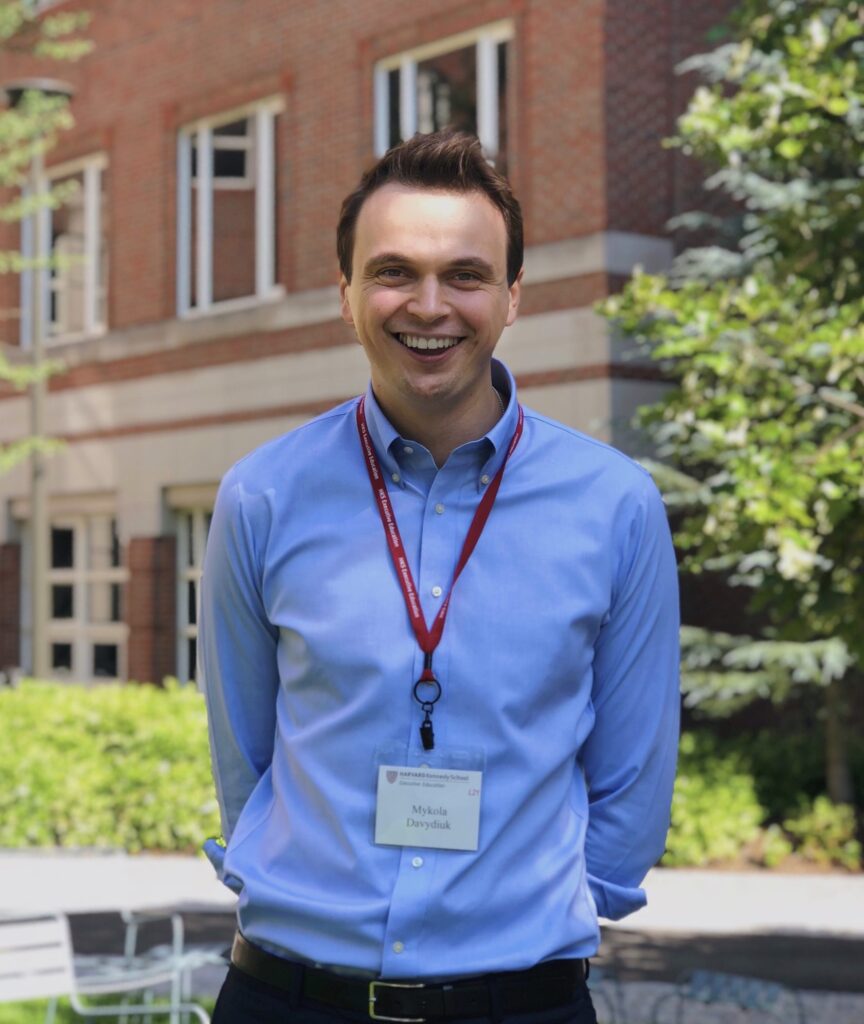
— What was the process like?
— During the month, they send you useful books and articles so that everyone can prepare and be on the same level. Then you come to Harvard and, together with the professors, discuss the topic of what you have read and familiarize yourself with new material. The program usually focuses on solving cases, although lectures also occur. From 8 a.m. to 8 p.m., the real pumping continues, and then everyone goes to hang out at networking until 3 a.m., and so every day. Cool friendships are established in this format.
— What about the participants, who are these people?
— 60-70 people from 20-25 countries take part in one course. The level of participants is as follows: from bankers from Hong Kong to ministers from Brazil, from heads of parliamentary committees in Nigeria to heads of military organizations and even US ministers. At the same time, it is cool that the courses are not limited to participants from the USA; here you can meet officials from the European Commission, as well as ministers of legal affairs or their deputies. Thus, useful political experience is not concentrated exclusively in the USA or the European Union but is spread throughout the world.
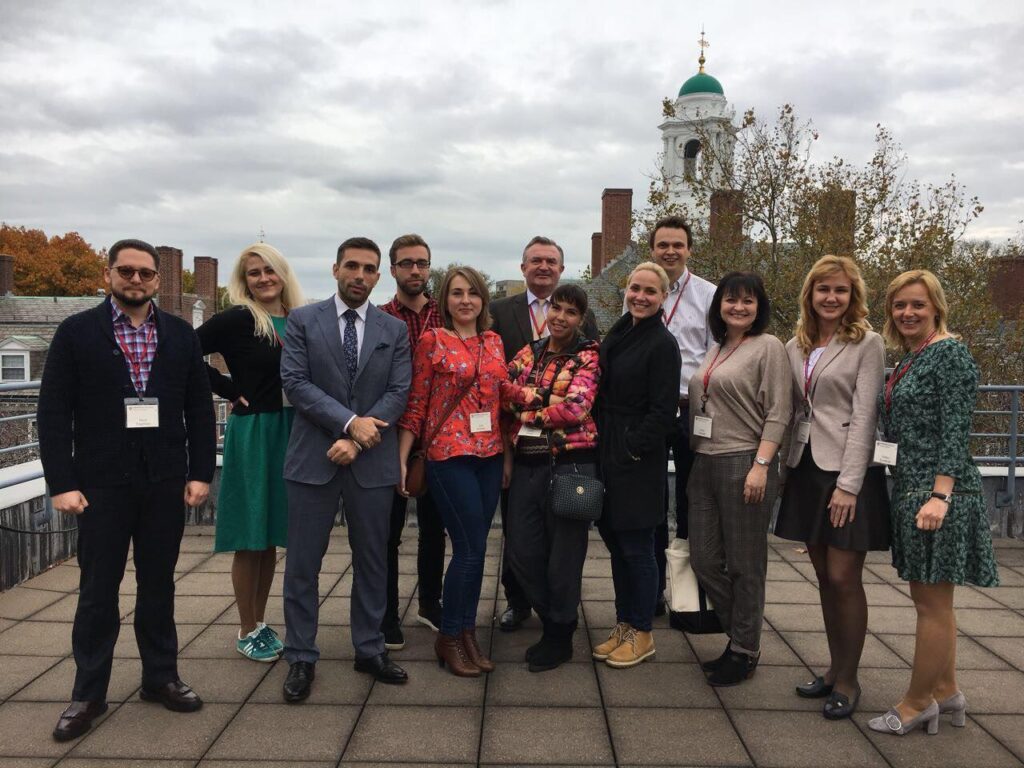
— Can you remember the teachers you remember the most?
— For example, public finance was taught here by a dollar millionaire who often repeated: “You paid crazy money to have your own opinion.” I remembered how he said that all those who gathered at the lecture had experience a hundred times greater than his own, all that remained was to learn how to use it. First of all, he emphasized that for us he is not a mentor, but a moderator. It was indicative that he refused to tell what was written in the books, he emphasized that we can buy the book and read it on our own.
— How about a mention of top teachers?
— Public administration was taught here by the head of Bill Clinton’s administration, who was responsible for the domestic policy of the United States. She told us how matters are resolved in the White House, gave examples from her work. When you listen to a teacher of this level, you understand that he is maximally in the topic and possesses the maximum amount of information. In addition, it was clear that she was interested in sharing her knowledge with us, so that in the future we would be no less cool than her.
Internet technologies were taught by the former head of the Internet department of the Democratic Party. In short, no matter what subject you take, the level of teachers was very high. Most of them are taught by modern politicians or former politicians who have reached the level of professors.
— What is special about Harvard?
— The first thing I would like to highlight is very cool teachers who use their audience. The second is group mates charged with obtaining useful information, establishing the necessary contacts and connections, ultimately developing an understanding of how the world lives. The third is that all teachers are practitioners. Harvard is a university of stars who were on TV yesterday and are lecturing today.
This university teaches good habits. For example, they encourage reading paper books. In classes, digital hygiene is felt, i.e. there should be no laptops on the table. The very concept of digital hygiene arose there much earlier. Studying at Harvard, you learn to understand how trends are created, how to track them. It turns out that everything is very simple in this regard.
Harvard is a university of stars who were on TV yesterday and are lecturing today.
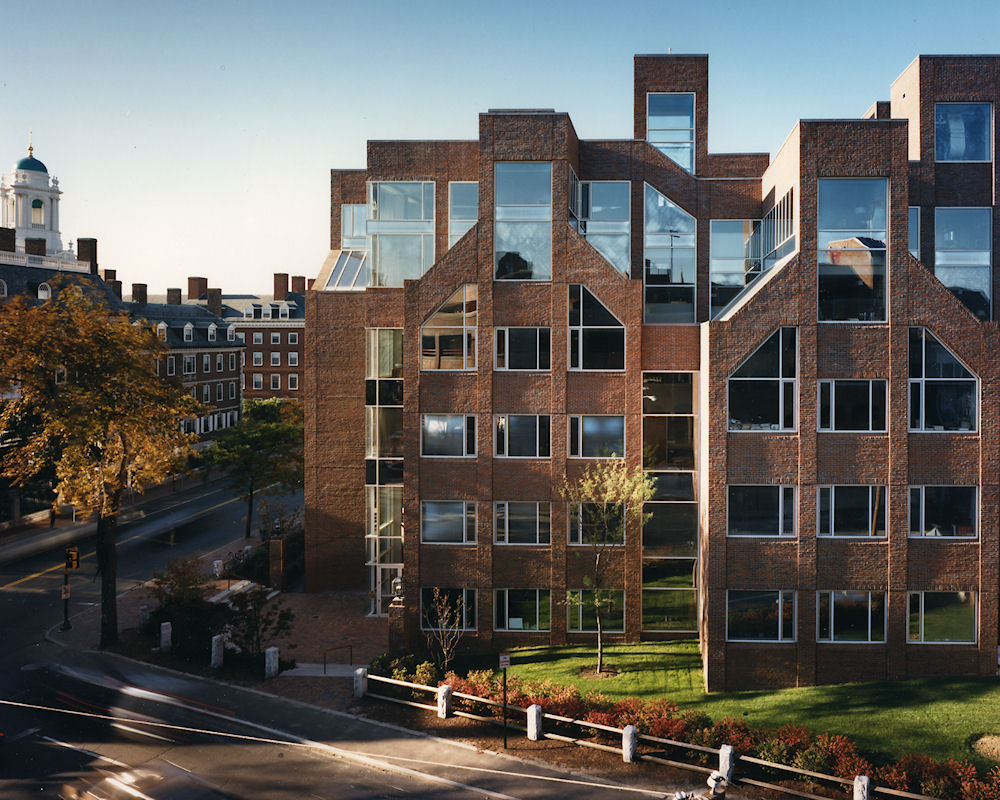
— Tell us more about the formation of trends?
— The Harvard approach is focused on topics whose study has been recognized by recent Nobel prizes. They are sure that this award determines how this or that industry will live. At the same time, no one here understands, does not look into the essence. In my opinion, the following question is quite appropriate: why, in fact, was this year’s Nobel Prize in economics awarded, and how can this knowledge be applied in practice.
There is a common saying at Harvard: “At lectures, we discuss what will be written in books five years from now. Accordingly, you have five years to use this information before it turns into a mass market.” To a large extent, Harvard is ahead of the times. Teachers are motivated to use thorough and in-depth knowledge in their activities, and not some noise.
There is a common saying at Harvard: “At lectures, we discuss what will be written in books five years from now. Accordingly, you have five years to use this information before it turns into a mass market.”
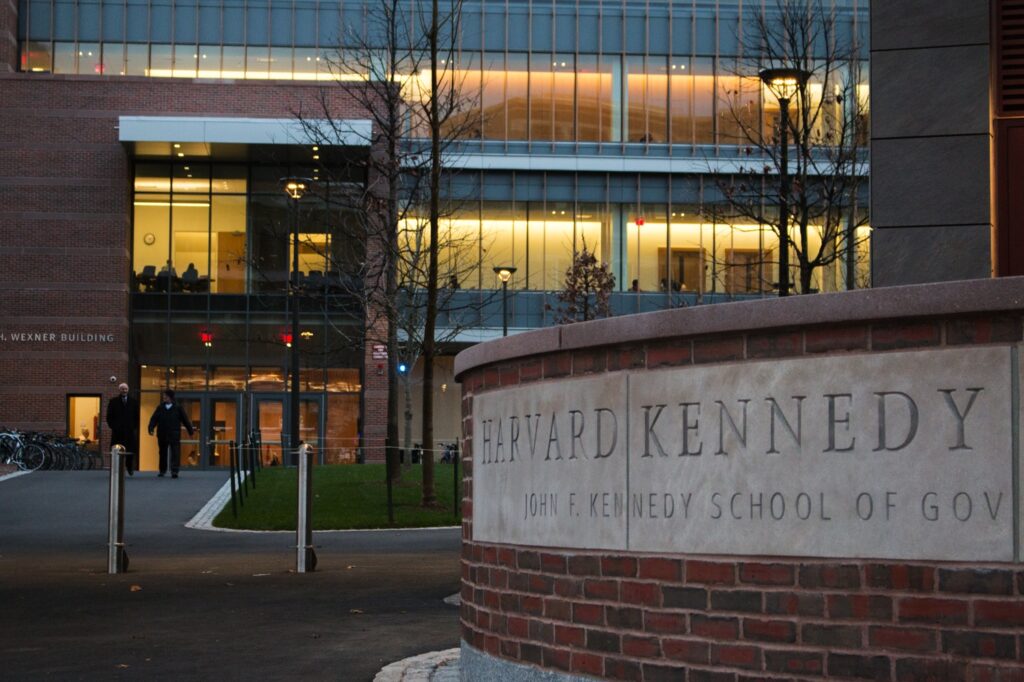
Politics
— What, in your opinion, is important to consider when comparing the personalities of Poroshenko and Zelensky?
— It is necessary to realize that it was not Zelensky who dragged us into the political situation in which we are currently. Today, Poroshenko criticizes Zelensky for bookmarks, which he, in fact, made himself. After all, who involved Ukraine in the Minsk process and the Steinmeier formula? Poroshenko. At the same time, he organized rallies against Zelensky, saying that Steinmeier’s formula is treason. In my opinion, Poroshenko is a complete political cynic, a confectioner in power who has gone crazy with money.
I find it funny to hear people trying to find the difference between a billionaire confectioner and a clown communicator. It seems that one of them is more suitable for managing the state. They are both harmful to public administration.
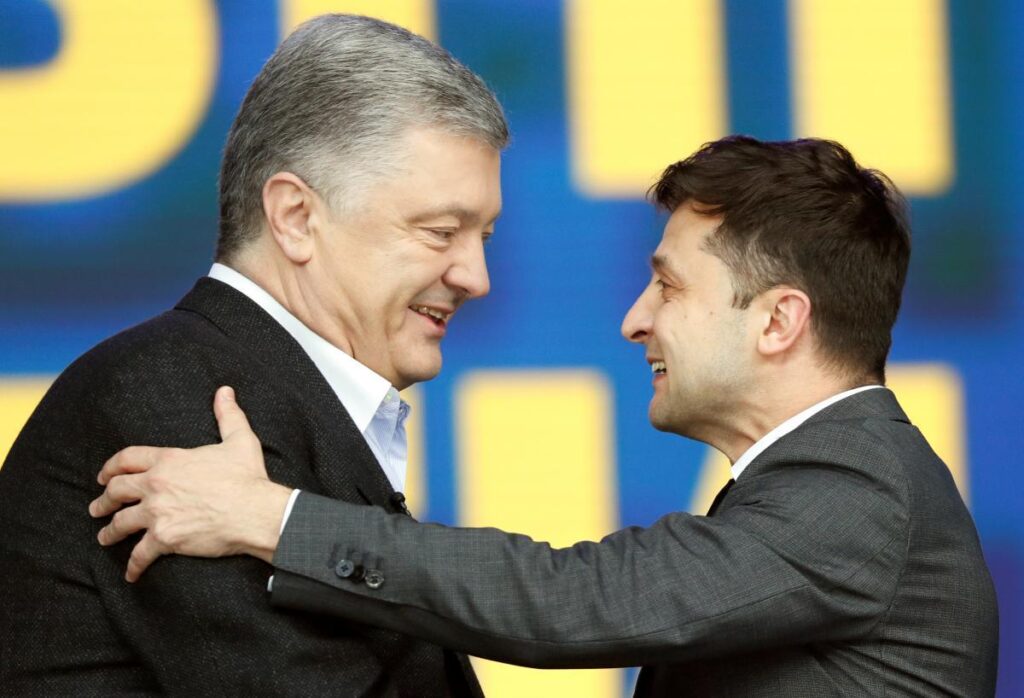
— What do you think Poroshenko made a serious mistake in?
— I remember how Yaroslav Hrytsak said that Poroshenko was afraid of the country’s internal energy. As an example, he cited the fact that Poroshenko tried to formalize the voluntary movement, which was already a very big driving force, which originated on the Maidan and found its continuation in the war. Volunteers did not have to be coerced and arranged into the army or the Ministry of Internal Affairs. Instead, they had to be directed to the state administration, because who, if not they, are honest and decent.
I want to assure you that thanks to volunteers, there is probably no other army like Ukraine in the world. For the most part, all those who went to the front as volunteers have a higher education. Educated volunteers were an invaluable resource that had to be used to restart the state, get rid of old practices and start new ones. Let’s admit the fact that we did not launch new practices, we only demonstratively implemented a few of them.
— Poroshenko’s merits include a completely restored army. Do you agree with this point of view?
— Indeed, under Poroshenko, the army turned 180 degrees in a positive direction, but not as much as it could have. All because the army has its pot-bellied generals who get new apartments every three years, drive Lexuses and don’t want to rest closer to the Maldives.
— How do you feel about Volodymyr Zelenskyi?
— Zelenskyy has a good understanding of the mentality inside the country and knows how to manipulate it in a way that no one has been able to do in thirty years. Paired with Kolomoisky, they actually do what they want. Accordingly, internally he has already learned to navigate the country perfectly, but, for example, in the external arena, he was a schoolboy at a meeting with Trump and did not understand even half of what was said in a foreign language. Obviously, this is not how success stories are made.
Of course, Zelenskyi is cool from the point of view of a guy from Kryvyi Rih who achieved success, but we now need a practical president who will save. Zelensky cannot save, he only puts out fires, rushes from end to end.
In short, Zelenskyi’s case is a typical story of media populism. After all, politics is a profession for which you have to prepare.
— You mentioned Kolomoiskyi. In your opinion, what do oligarchs parasitize the most?
— They do the most damage with their political manipulations. Please note that most often the parties that get into the parliament are, in fact, not the parties themselves, but TV channels. In the case of Zelensky, we see that he invested money in TV series, because this is his propaganda. They buy star presenters to host their Friday shows, and under the guise of popularity, get their parties into parliament.
— Can we say that Zelensky brought new people to power?
— I have always supported the request for new politicians. In my opinion, the era of Poroshenkos and Lytvyns has long ended. Currently, the problem is that they do not recruit independent professional people for positions that smell of money, but their oligarch friends, godfathers or classmates. Of course, in positions where you need to plow, they turned on the “Lift” program, they say, turn on. All these personnel tricks turn our state apparatus into a kind of Frankenstein, made up of different parts. This is how the state body does not work.
There should be professionals in every position. At the same time, it works as an image in politics: you can wear one informal accessory, but if there are five such accessories, then they will no longer be taken seriously. In the event that this bright accessory is you, the rest should look according to the dress code and rules. Regardless of who is elected president, the classics of public administration must be followed in all approaches. Today, we see that so many of these accessories are glued that they can be used to illuminate the Christmas tree. At the same time, they also think that they should succeed in everything. It won’t work.
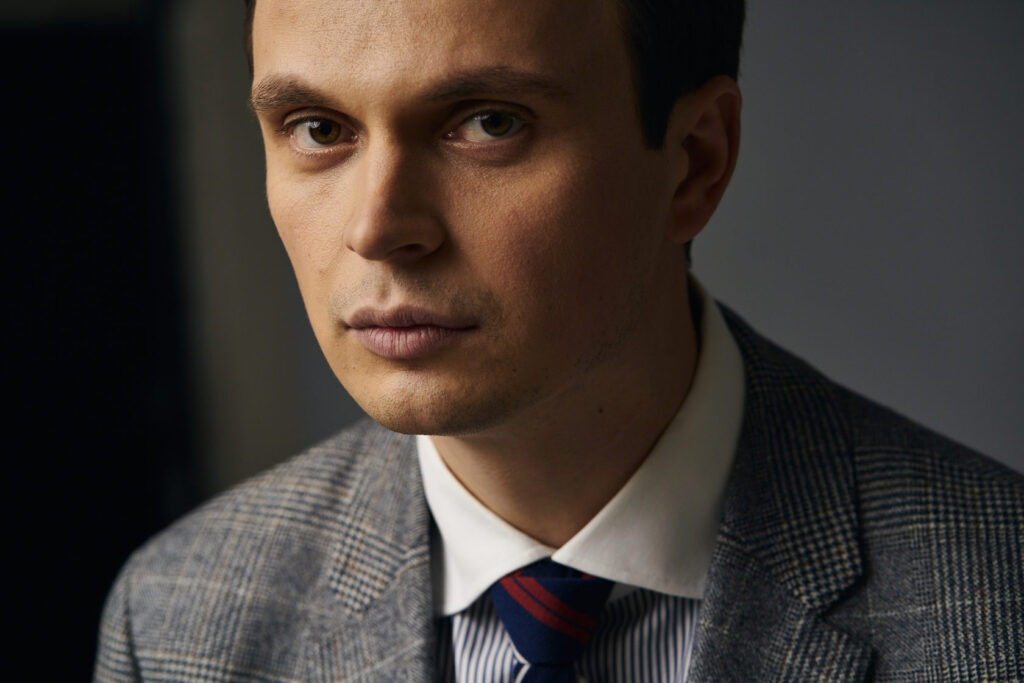
— And if we talk about those who passed to the Verkhovna Rada?
— When new politicians came to the Council today, they need to be told that, in addition to the fact that they got into the parliament, they should be professional. In my opinion, some of them still need to be sent to study at school, because ninth graders cannot be allowed to rule the state. Sure, they can take cool selfies, some of them can even be sincere in their intentions, but they just plain don’t know what to do, and that’s a problem.
— Zelenskyi’s New Year’s greeting was heatedly discussed in the media space. How do you rate it?
— Light and amateurish – from a political point of view – Zelenskyi’s greeting looked very buffet style. It was quite easily accepted, as for the New Year’s table of Ukrainians. In his greeting, Zelenskyi did not touch on difficult topics, tried to joke and used the favorite star leaders of Ukrainians’ opinions.
However, the problem is that in the speech, Zelensky was more of a comedian and the leader of the 95th quarter than the leader of the country. It seems that he never managed to become the president. From the point of view of plans, strategies for the year, summing up and directions of Ukraine’s development, it looked primitive. There are reasons to believe that the New Year’s greeting demonstrated the real essence of the mood prevailing in the President’s Office.
Zelensky should finally mobilize and understand that the “honeymoon” period of his tenure is over. We need to roll up our sleeves and really get to work, not just play the role of president.
— Speaking specifically about the challenges, do you think that the communication strategy was chosen correctly during the tragedy with the Ukrainian Boeing in Iran?
— The trip to Oman, where Zelensky, according to insiders, went to deal with personal financial matters, was not communicated, which ultimately led to a scandal. In addition to the lack of communication from the Office of the President, it is also about the uncoordinated work of the special services. All this is the result of the fact that the government, almost in its entirety, went on vacation, leaving no one on the farm.
Zelensky’s silence calls into question not only his professionalism, but also that of his team. I mean not only the silencing of the Ukrainian plane that was probably shot down by an Iranian missile, but also the lack of a state strategy to protect its own citizens and national interests. These circumstances raise many questions and cast doubt on the current Ukrainian president’s real ability to conduct global politics.
— What is Zelenskyi’s team counting on when it builds its actions in a similar way?
— Zelensky’s procrastination is understandable: he is counting on a strategy that has lower risks. In particular, he will focus on the statements of world leaders, including Trudeau and Trump, and, based on them, will adjust his own statements. Zelensky will not rely solely on the information of our intelligence or our special services, he is afraid to stumble, and therefore we will hear his position only after the world leaders present theirs.
In the complex, this leads to the fact that Ukraine and the Ukrainian company, which became a victim of the aggression of the military attack, are generally “speechless”. We have no position and cannot declare anything. This creates the image of a weak, unprincipled state that does not have its own position even in such critical moments when it is necessary to voice it sufficiently harshly.
— How do you rate Russian President Vladimir Putin?
— Let’s look at how Putin positions Russia. He says: we are a market with a population of 150 million, ready to buy anything. Another moment when he says: give us investment, we will install communications, collect taxes, protect and carry you in our arms, just come. Do you need gas? – take gas. Do you need a gas pipeline? – I will build it myself. Need oil? – take oil.
Accordingly, he makes tasty offers to European politicians and businessmen, most of whom are also corrupt. There are well-known examples of people who were paid to serve Russia. Like, fly a helicopter, enjoy life, we will give you tasks, and you will implement them. If we don’t complicate things, these tasks sound something like this: buy factories, introduce our company to the market, make it a monopoly, create a party, buy a channel.
It is important to understand that Putin makes interesting and profitable offers for the West, and we come here to suffer. Unfortunately, mentally we live somewhere in the Ukrainian literature of the XVII-XVIII centuries: we complain, cry and say that everything is bad for us. Until now, we have not formed a positive presentation of the country.
— Russian politics of the Putin era cannot do without propaganda. What are the latest trends in it now?
— In fact, Russian propaganda has not changed since Soviet times, only instead of radio, there is now television, as well as Facebook. Through third parties, the Russian government entered the capital of Facebook, although its influence is not recognized. Thanks to neuromarketing and political psychology, they easily manipulate people in many countries of the world, and all this is done through Facebook. Regardless, Facebook is a global tool. I’m referring to Russian interference in Brexit and the US presidential election.
— How did the scandal with Trump shake the image of Ukraine on the international arena, and what is the probability of impeachment?
— The fact is that today Ukraine simply does not know how to use the combinations of cards that are dealt to it. If Erdogan or Orbán had such a combination, they would make cool cases for their country. There are no politicians in our administrative offices today who would have the experience or ability to disrupt it. Based on such realities, for us every challenge is a grief.
Currently, Zelensky’s strategy is to avoid scandalous stories and maintain normal relations. It is quite understandable: if you get involved in a story like Trump’s impeachment, there is always a threat to make a bet on the wrong side and be left alone with Russia. Regarding Ukrainian relations with America: the Ukrainian position is to maintain neutrality with respect to Republicans and Democrats. Like, we respect the US, but please don’t drag us into your inner game.
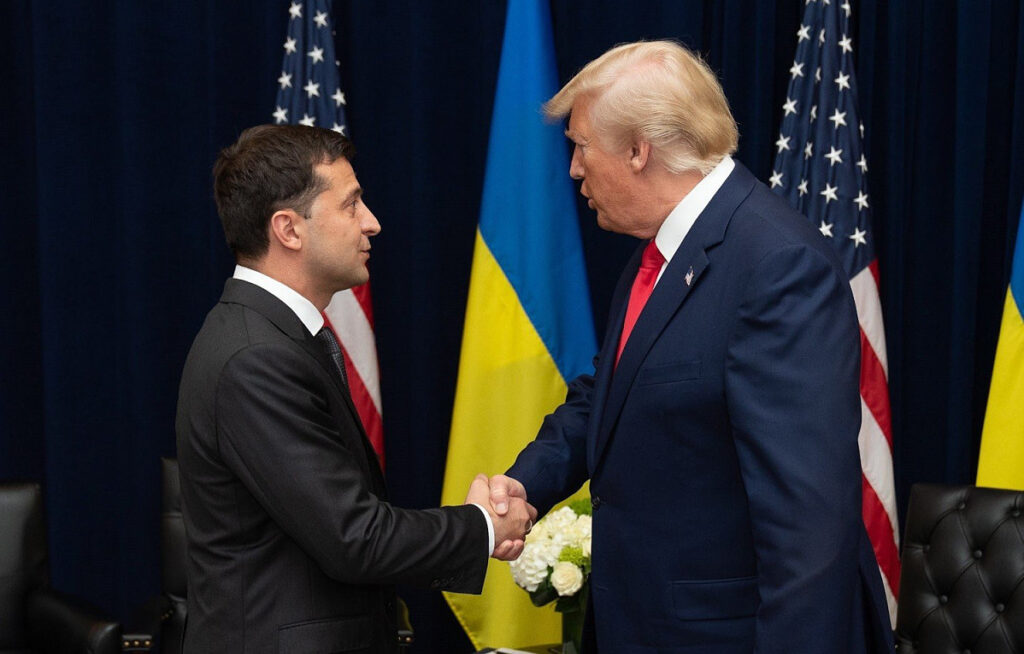
— Where do we lose the most when we are afraid to take the initiative and at the same time take responsibility?
— We are the world champions from the point of view of the state policy of scoring goals into our own goal. Let’s take the situation with Donbas and the peaceful settlement. We do not make offers that will be win-win. For five years, not a single successful proposal has been received from Ukraine. Formulas for resolving the conflict are invented by Putin, Steinmeier, Macron, in fact, anyone, but not us. We have adopted a defensive posture, but we are not attacking.
Creation of a nation
— You mentioned that grandfather is your superhero from childhood. Can you give an example of a modern superhero who could be an example for others?
— Borys Hudziak is an example of what a modern Ukrainian should be, an example of the global thinking that we lack today. He implements spiritual leadership from Philadelphia to Paris, while simultaneously developing a university in Lviv.
It is worth noting that the Ukrainian Catholic University was created virtually from scratch, and today it is the coolest in Ukraine in terms of modern architecture. Boris Gudziak, like no other, shows us what a real global Ukrainian should be, sets an example to follow.
Speaking separately, such a Ukrainian must have the qualities of a powerful state or its president. He must be moral, strong, ambitious, his own in the whole world.
A global Ukrainian must be moral, strong, ambitious, his own in the whole world.

— Tell us about globality using your own example.
— While finishing graduate school, I wrote a study on the role of student self-government in the formation of political elites. So, even then, I met with representatives of Polish local self-government, the Seimas, and members of the European Parliament.
After graduating from university, I worked on elections in Georgia, Catalonia, Kyrgyzstan and Poland. Moreover, I held various positions: an observer, a consultant, and somewhere else I worked with my hands.
Today, when I’m on business in the US, I always meet with politicians running for office and their teams. In short, my overseas global experience was different, but all of it was interesting to me, because I always wanted to know how political technologies work abroad.
— And if we talk about globality not only in a professional sense, but in general?
— First of all, I really like to travel: I have visited more than 50 countries, and every year this list grows. With my eyes closed, I can give you a tour of New York or Barcelona.
In general, I don’t like it when Ukrainians are tied to only one mentality. Let’s not close ourselves in our mental complexes, let’s not say that there is only one correct solution. This applies to both household items and politics and any work.
Let’s not close ourselves in our mental complexes, let’s not say that there is only one correct solution.
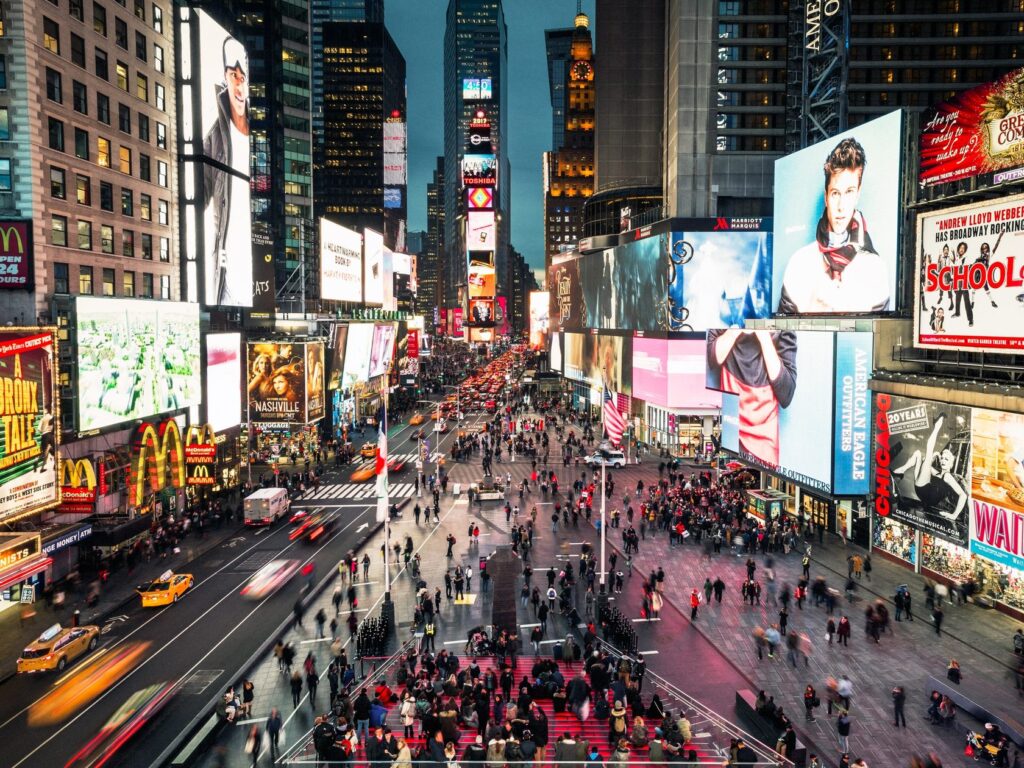
— How can Ukrainians become global?
— In order to become global, Ukrainians need to have dual citizenship and knowledge of English from kindergarten. In addition, it is Ukrainian’s that should prevail inside. Only in this case will our state have a chance for implementation.
Some parties say that we should rethink industrialization. Like, we had big factories for building ships. Listen, today no one needs these ships. It’s one thing if you have ideas on how to build spaceships, but if you don’t, it’s better to just keep quiet.
Today, it is extremely important for us to be on trend and use modern technologies. We have to capture the global markets and develop in sevenfold steps, then we have a chance to develop.
— What is needed in order for Ukrainians, going abroad, to identify themselves as Ukrainians?
— In order for our population to identify with Ukraine, it needs to be set an example. In this sense, I like the case of Hindus from a small village in Bangalore. They go to work in the USA and, earning money there, invest it in the same Bangalore. They had the opportunity to invest in large corporations in the States themselves or anywhere, but they chose their native place. After all, a small village is a global center of IT outsourcing, where the land has increased in value thousands of times, and the village has turned into a huge metropolis.
This story is built on patriotism, although it is latent, but it works. Accordingly, if you program a Ukrainian to the fact that Ukraine is his little homeland, then, even living abroad, he will invest in it. Actually, our entire Ukrainian diaspora in Ireland, Israel, or Canada is a chance for us.
If you program a Ukrainian to the fact that Ukraine is his little homeland, then, even living abroad, he will invest in it.
— It is obvious that Russia has always stood on the way to a global Ukraine. How can we oppose her in this?
— In the conflict with Russia, it is necessary to understand that, of course, it greatly exceeds us from the point of view of resources, as well as in terms of size and scale, but if we become global, we will be able to compete with it.
A very important point: if we do not go global, we will simply die in regional strife. On the one hand, we are surrounded by marginality, on the other, autocracy, which will absorb us.
If we don’t go global, we’ll just die in regional strife.
— On what foundations, in your opinion, is a successful country built?
— Any country is built on national aspects, for example, patriotism and native language. Each country has its own national team and its own fans, as well as its own army. Up to a certain point we had no army, but when we were attacked we found that there were a large number of men ready to die defending their country. We can gather these people together only on a patriotic basis. By patriotism, I mean a bright deep inner feeling experienced in childhood, for which it is customary to live. Actually, superheroes are needed in order to save this state.
By patriotism, I mean a bright deep inner feeling experienced in childhood, for which it is customary to live.
— What hinders Ukraine on the way to global development?
— Ukraine is a country of super-opportunities, oppressed by its own leaders, whose offshore companies are growing commensurate with our debt in international institutions. Such people have no desire to make the country successful, they just want to fill their bank account. These people do not see the state as a successful project, but only as a cash cow that needs to be milked, not fed.
Sometimes it seems that thugs and thieves have seized power and do not want to let it go. Having become oligarchs, they settled so firmly that today they already have their European lobbyists, world-class lawyers and pocket media. They have their service personnel in the form of other politicians, opinion leaders, info killers, sometimes even comedy circles.
They don’t want to make a cool story like the ones Saakashvili made in Georgia, Balcerowicz in Poland, the Estonian president in the 90s. Nor do they want to create a story like South Korea, which has its maddened, missile-tossing northern neighbor. South Korea is a country of global corporations – Samsung, KIA, Hunday, LG, where an average worker earns 300,000 bucks a year. Have you seen such salaries in our country?
Ukraine is a country of super opportunities, oppressed by its own leaders.
— Probably, the problem lies in the difference in mentality. How, in your opinion, is the Ukrainian mentality different from the Korean one?
— In the context of South Korea, the story of General Lee is especially relevant for us. After the defeat of his fleet by the Japanese, he was left with only 12 ships out of 300, while the Japanese had 200 ships. The remaining ships were ordered by General Lee to go to the last battle and defeat the Japanese. Of course, everyone laughed at him, but General Lee won because he knew the inland waters and destroyed the Japanese fleet. This is not just a legend of warfare or statecraft. The business philosophy of South Korean companies is to find ways to be stronger even when you are weaker. This is exactly what we lack.
Despite this, it is good that today we are looking for our own success story, because we want to be successful and strong. We should not be ashamed of this, because our strength lies in this desire.
The business philosophy of South Korean companies is to find ways to be stronger even when you are weaker.
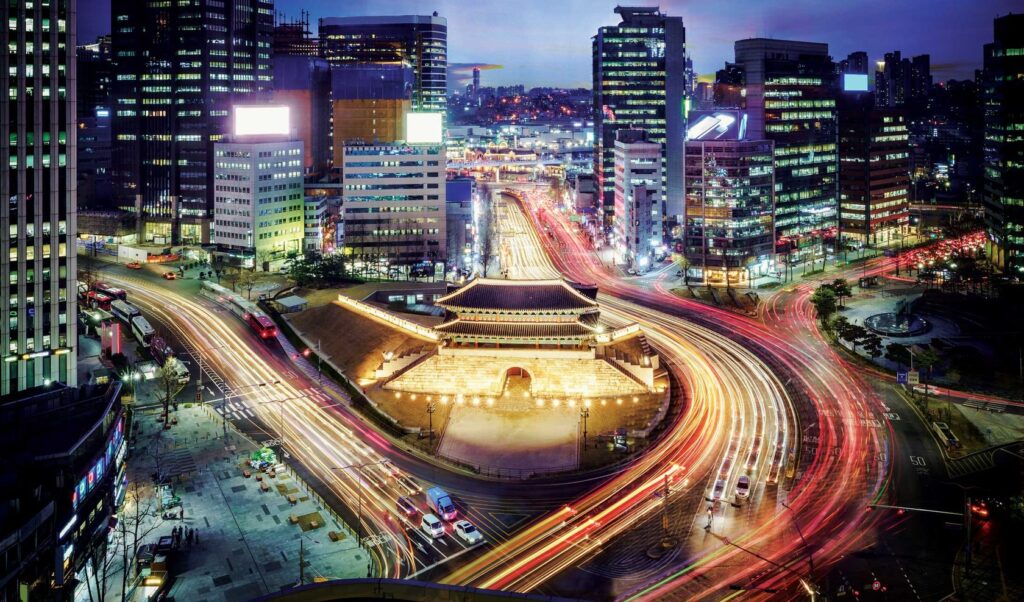
— Your second book “How to make Ukraine successful” was recently published. Tell us more about her.
— At that time, when I wrote this book, there was a trend in the country to pay attention only to how bad things are in our country. Instead, I was driven by a visionary mission to push society toward real change. The fact is that Ukrainians lack quality contexts and meanings, as a result of which “we want everything, but we don’t know how to achieve it.”
Often, a beautiful sign and wrapping is enough for us, but we still don’t know what values need to be filled in the mentality in order for Ukraine and Ukrainians to become a successful case. Architecture and literature are no exception: we do not know what meanings need to be created and transmitted – we also do not know how to build an effective state administration.
Obviously, a push is needed to initiate change, and I wanted to give it. Not limited to politics, I chose 15 topics: from demography to business, from mentality to cuisine. I recorded interviews with specialists in these fields in order to solve the problem as comprehensively as possible. We forget about our national cuisine, and meanwhile it can also be our ambassador.
Often, a beautiful sign and wrapping is enough for us, but we still don’t know what values need to be filled in the mentality in order for Ukraine and Ukrainians to become a successful case.
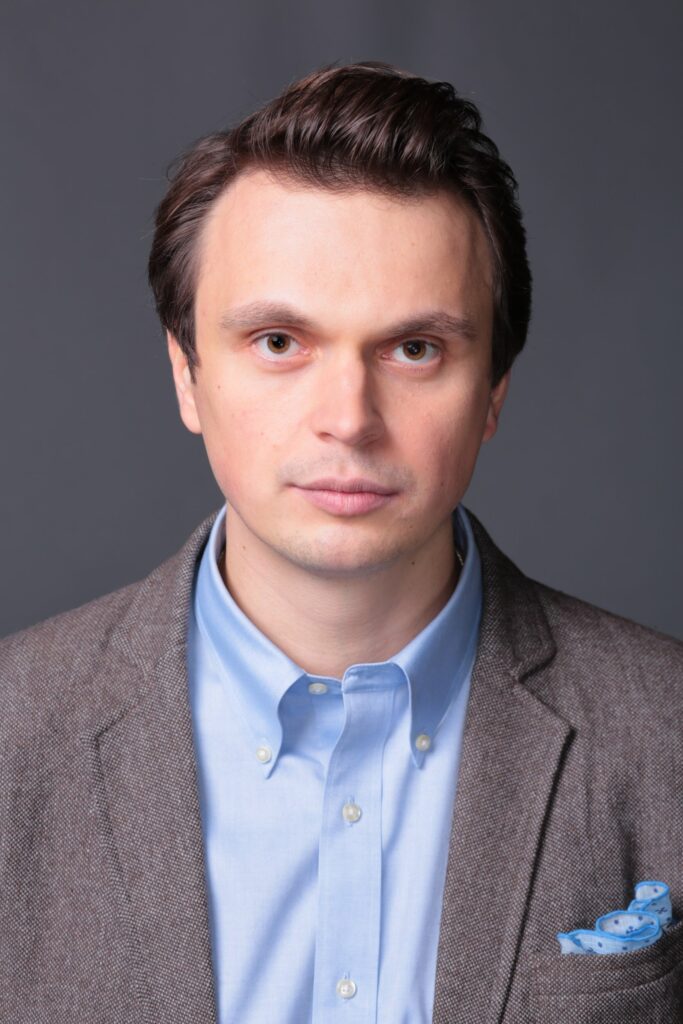
— The kitchen is definitely an interesting idea! What did you want to pay attention to in this direction?
— Ukrainian cuisine is not talked about in the world, the “Taras Bulba” restaurant is not something we are proud of somewhere in New York or London. However, personalities like Dima Borisov are already a new wave of people who live in a global semantic trend and develop cuisine in this context. For example, Borisov has a cocktail called Horodetsky, named after a Kyiv architect whom we all forgot. Although, in fact, he is our Gaudí. This case illustrates how the figure of the iconic architect for Kyiv can be used precisely in the gastronomic arena.
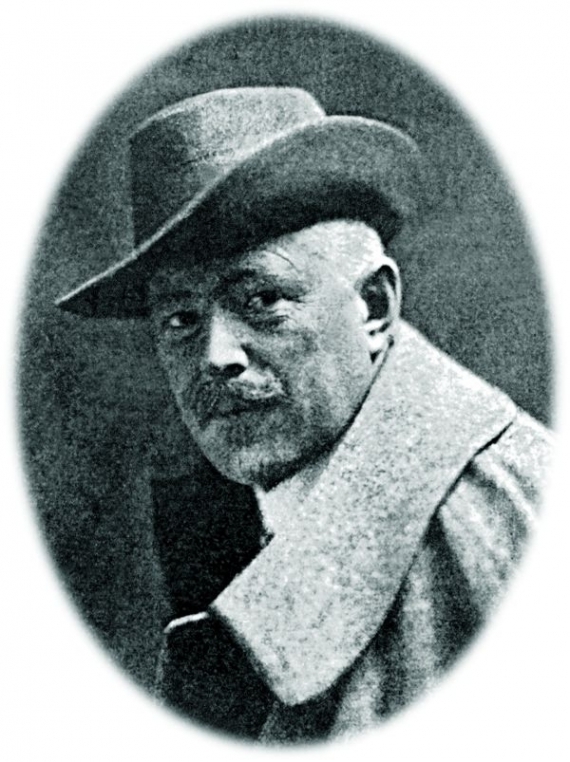
— Horodetskyi’s house with chimeras is genius.
— Unfortunately, Horodetskyi did not become our brand or hero. For example, you can make a film for Netflix like “Vicky Cristina Barcelona”, but about Kyiv, where Horodetsky will be in the center of the story. After that, his personality will live in the world. For now, this is a missed opportunity that could potentially be resuscitated.
The filming of “Vicky Cristina Barcelona” was paid from the city budget, after which millions of tourists flew to Barcelona. At the same time, the film cost less than the city deputies steal at one session of the Kyiv City Council.
It is possible to make a film for Netflix like “Vicky Cristina Barcelona”, but about Kyiv, where Horodetsky will be in the center of the story. After that, his personality will live in the world.
Kyiv
— What is Kyiv like for you?
— For me, Kyiv is the assembly point of the state, the city where all key decisions are made. In many ways, Kyiv is selfish, it attracts all the brains to itself, promising them to be realized. There are no authorities and a sense of framework in it, you are free to do whatever you want: the crazier, the better. Any crazy idea is good.
I really admire Kyiv’s dynamism, the “go and do” spirit, which in English sounds like hardworking. I also love Kyiv because it has a developed work culture. After all, working at night is normal, it just shows that you want to achieve more. I assure you; this is not the case everywhere in the country.
In Kyiv, there are no authorities and no sense of framework, you are free to do whatever you want: the crazier, the better. Any crazy idea is good.
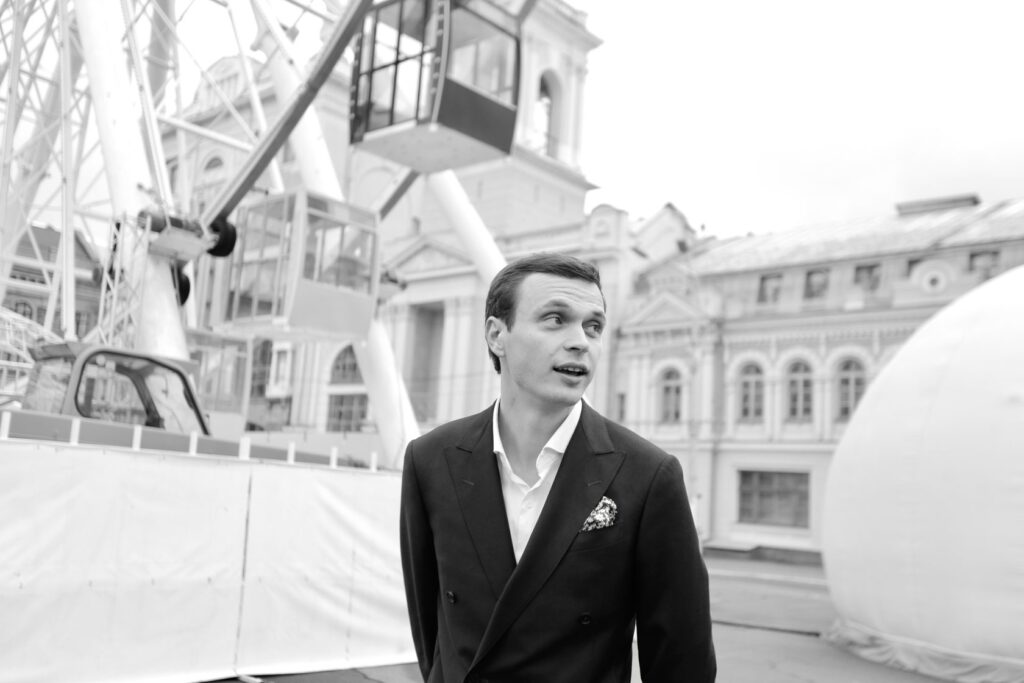
— What are your favorite Kyiv institutions?
— If we talk about cuisine, I would not like to single out individual places, but I can definitely say that in Kyiv I easily realize my culinary cosmopolitanism. I can eat Chinese for breakfast, Indian for lunch, and Italian for dinner. And there is nothing surprising in this!
In Kyiv, I easily realize my culinary cosmopolitanism. I can eat Chinese for breakfast, Indian for lunch, and Italian for dinner.
— Today, Kyiv is developing dynamically in terms of opening new coffee shops, illustrating the global trend.
— Although a few years ago, Lviv overtook Kyiv from a gastronomic point of view, during the last three years, Lviv and Kyiv no longer compete. It’s simple: in Kyiv institutions, the check has decreased, and the quality has increased. In addition, we can safely say that there are enough establishments in Kyiv that can fairly compete with establishments in Berlin and New York, and this is incredible! Maybe now there are not so many of them, but they definitely sometimes confess, sometimes set a global trend.
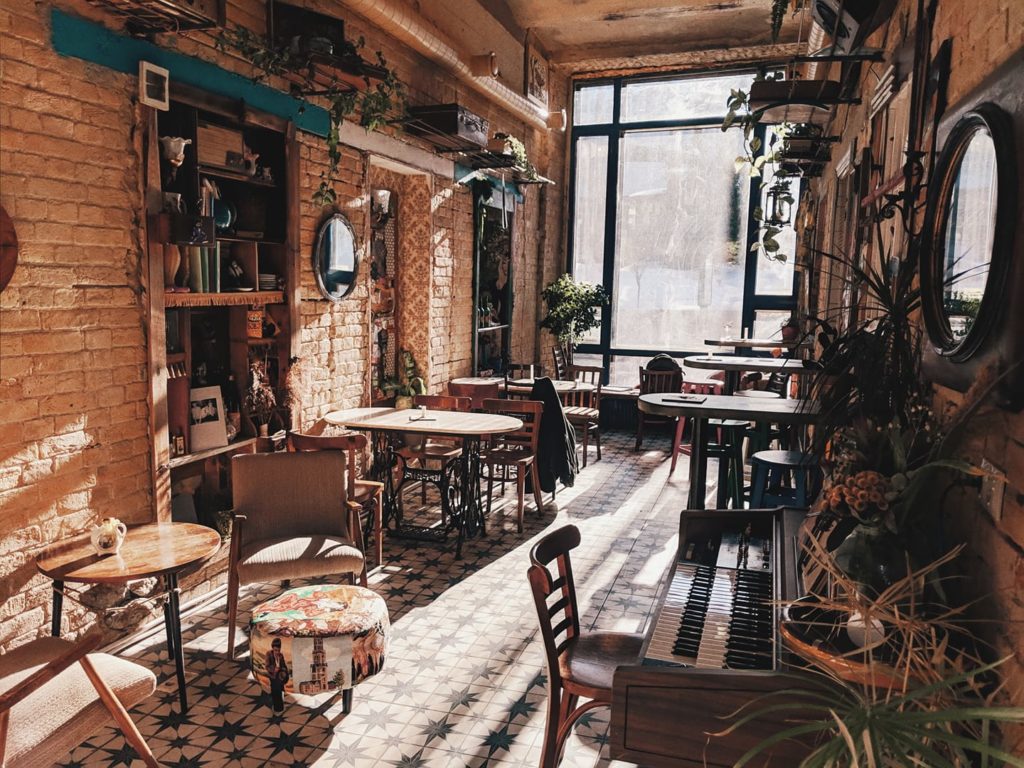
Photo: Barout
There are enough institutions in Kyiv that can fairly compete with institutions in Berlin and New York. Maybe now there are not so many of them, but they definitely sometimes confess, sometimes set a global trend.
— What about the most native streets?
— Bohdan Khmelnytskyi is definitely on the first place, almost my whole life takes place there: first study, then work, now my own office. This street has a long and incredible history from tsarist Fundukliivka and Soviet Lenin to independent Khmelnytskyi. Over the past 100 years, its name has been changed several times, but in my opinion, its atmosphere remains unchanged.
I like to walk along such streets as Reitarska, Pushkinska and Ivan Franko. I adore Tereshchenkovska, because on one side of you is the cozy Shevchenko Park, and on the other – the Khanenko Museum and the Kyiv Art Gallery. I really love Bankivska with its history and interesting characters of those who lived there. Also love Podil, especially for the hipster drive he captured.
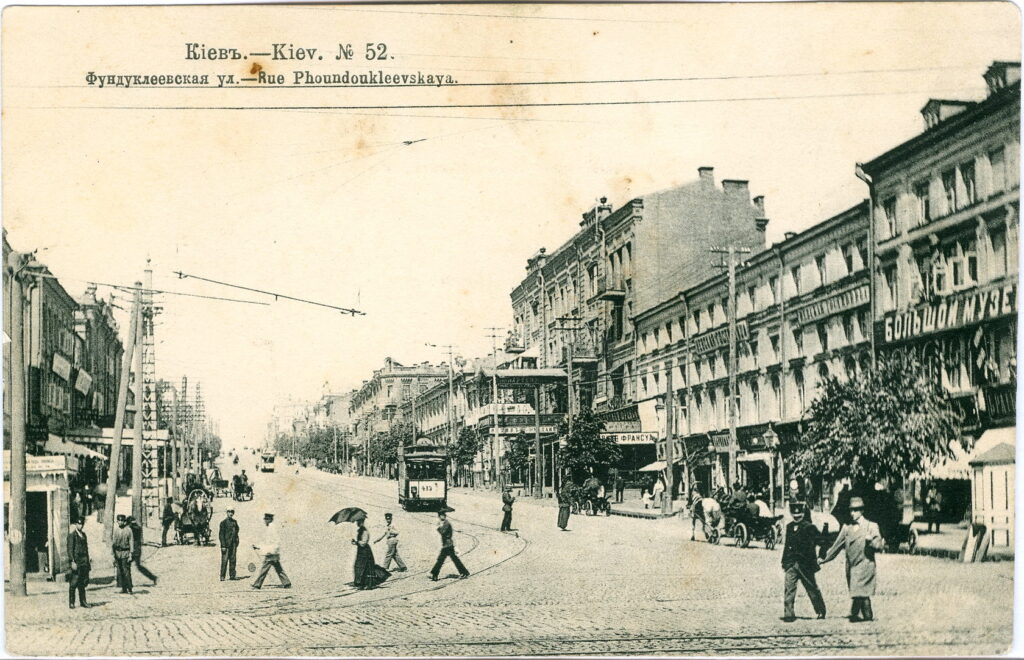
— What about state seats? Are you touched by their atmosphere?
— Volodymyrska is a special place for me, this part of Kyiv is very statist, full of energy. Just imagine: a hundred years ago, on this street, intellectuals were wresting the Ukrainian state from the clutches of the empire. I mean the Teacher’s House. A place that could have been a political hub is, unfortunately, abandoned today. In my opinion, the times of the Ukrainian People’s Republic are an undiscovered and underappreciated period of our history.
I admire St. Michael’s and St. Sophia’s Cathedrals, because they are the hidden depths of the Ukrainian state. The cathedrals of the times of Kyivan Rus are a direct evidence that Ukraine is not 28 years old, but at least 100. And when wolves and bison were running on the territory of modern Moscow, ambassadors from Scandinavia and France were already coming to Kyiv. The historical foundation is what gives us a chance to win over Russia.
The historical foundation is what gives us a chance to win over Russia.

— Besides Horodetsy, do you have any Kyiv superhero?
— I like how Ostap Vyshnya wrote that he “ran from the university to the Central Rada, and from the Central Rada back to the university, managing to do theater productions, write a book and engage in state politics.”
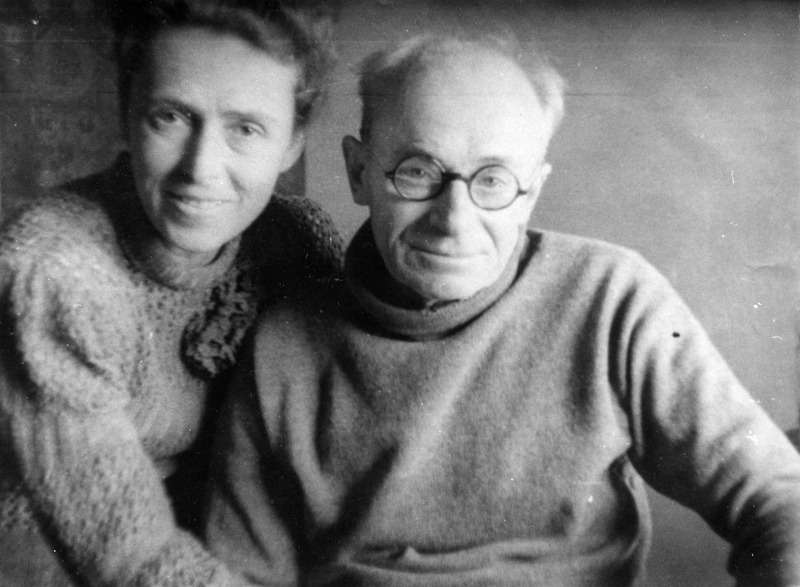
— Please comment on the situation with the development of Protasovoy Yar?
— What is being built in Protasiv is a shame to all city leaders who say they are doing something. It is extremely cool to have such a ski hill in the city, and it is pointless to remain without it for the sake of another residential complex that no one needs, except for those who invest money in it. I think that our drive and modernity will beat the sloppiness in trying to make a living. But it takes some time.
On the one hand, it is pleasant, but on the other hand, it is very sad that there are opportunities in Kyiv that neither Kyivans nor foreigners notice due to indifferent officials and developers. For example, the fact that you can go kayaking or windsurfing, and in the winter you can go skiing, all within the city limits. Protasiv Yar is the hidden self-identity of Kyiv.
Protasiv Yar is the hidden self-identity of Kyiv.

Worked on the material
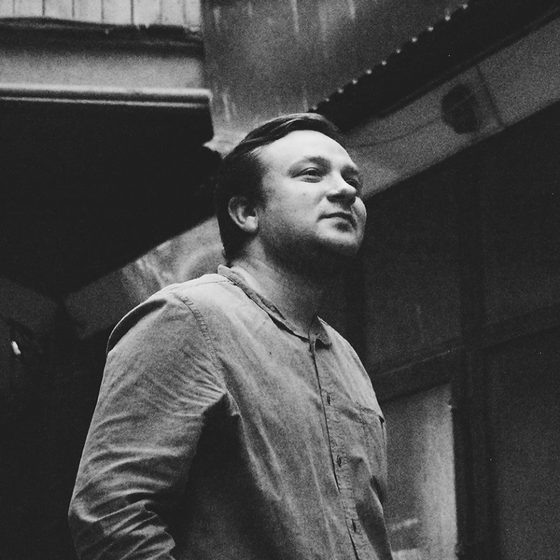
Yaroslav Karpenko
Editor in Chief

Nelya Petriv
Corrector

Evgenia Murinova
Transcriber

Anastasia Yakovenko
Transcriber

